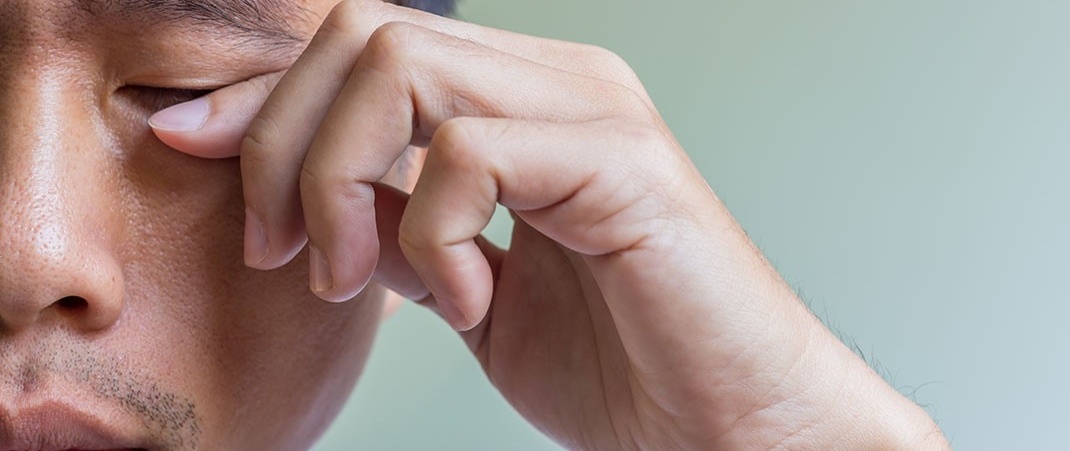
A corneal ulcer is an open wound on the cornea, the structure that covers the iris and the pupil in a similar way to the crystal covers a watch face. Corneal ulcers are normally caused by eye infections, although extreme eye dryness or other eye disorders may also cause it. When there is a loss of tissue, it is defined as a corneal injury.
The symptoms that a corneal ulcer causes include:
You should see an ophthalmologist immediately if you think that you may have a corneal ulcer or if you experience any type of eye symptom that concerns you. Corneal ulcers may severely and permanently damage vision and, if left untreated, can even cause blindness.
You are at greater risk of suffering from corneal ulcers if:
If you wear contact lenses, handle and store them with care, and remember to clean them correctly to reduce the risk of corneal ulcers.
The best treatment options include antibiotic, antifungal or antiviral eye drops. In some cases, the ophthalmologist may prescribe antifungal pills. In others, injecting medication into the eye area may be necessary.
Anti-inflammatory drops can also be prescribed once the infection has improved or disappeared to help to reduce swelling and prevent scarring. To reduce pain, the ophthalmologist may prescribe oral medication.
If symptoms change or worsen during treatment, see your ophthalmologist immediately.
When the infection disappears and the ulcer has been cured following treatment with medication, sometimes a noticeable scar remains. It is possible that an ulcer cannot be treated with medication. In these cases, an operation known as a cornea transplant is required to improve vision. In a cornea transplant, the damaged cornea is replaced with a healthy cornea from a donor.
Contact us or request an appointment with our medical team.